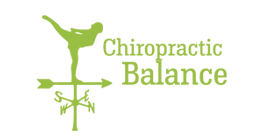With the recent coronavirus (COVID-19) outbreak, many people are concerned about staying healthy and maintaining a healthy immune system. Doing so can benefit your body and boost your defenses against viruses, bacteria, and other pathogens. In this article we outline the "Don't" and "Do's" of boasting your immune system to help your body stay strong to fight off infections.
DON’T:
Excessively drink alcohol
The occasional drink may be needed to manage some of lifes’ stresses, it is important to refrain from excessive alcohol consumption for a healthy immune system. Studies have shown that excessive alcohol consumption may lead to altered immune regulation [1,2].
Smoking
While this may be an obvious statement, the effects of smoking can not only impact on your respiratory and cardiovascular systems, but also contribute to a weakened immune system. Studies show that nicotine is an immuno-suppressive agent which hinders the body’s immune responses [3,4].
Drink high amounts of caffeine
Now may be a great time to go on a caffeine cleanse. Not only has caffeine and coffee been shown to increase blood pressure and headaches, but there is also a strong link between caffeine and anxiety (especially in those that already have anxiety related disorders) [5,6,7]. So why not replace your morning cup of coffee with a nice replenishing glass of water?
Stress out
When we are stressed out our bodies release a stress hormone called cortisol. High levels of cortisol may lead to not only a weakened immune system, but it has also been linked to weight gain, digestive issues, brain fog and heart problems[8,9]. Next time you’re feeling overwhelmed, try some of our following tips as well as "belly breathing" or "mindfulness" [10].
DO:
Get adequate sleep
Ensuring you are getting a good night's sleep plays a role in your body’s immune system. As we sleep, our central nervous system communicates by the production of cytokines (a protein that targets infection and inflammation). When we get inadequate sleep, our immune cells are impacted, leading to a compromised immune system [11]. The recommended length of sleep varies depending on age, but is recommended between 7-9 hours for adults [12].
Move your body
Making sure we stay active throughout the lockdown period is important as exercise has been shown to boost energy levels, mental health and promotes healthy circulation. This however, doesn’t mean you should start a strenuous exercise regime as studies show that an excessive amount of physical exertion may be detrimental to one's immune system. Although mild to moderate levels of activity have been shown to have many health benefits, including fewer infections [13,14]. With that in mind, move your body within your tolerance.
Be social (from home)
Studies have shown that individuals who are more socially connected have a higher level of immune function compared to those who are not [15]. During these difficult times, we obviously cannot socialise in the way we know how, however, virtual socialization is a new concept that is helping the world stay connected to their loved ones. Some ways you can socialise may be through facetime, zoom, skype, email or even the old-fashioned phone.
Eat nourishing foods
During this time, we may be tempted to reach for comfort foods and develop bad snacking habits on less than ideal foods, however, it is important to maintain a balanced diet enriched with key vitamins and minerals to support healthy immune function. Studies show that sugar and alcohol impact your immune function as sugars reduce the activity of immune cells (neutrophils) and alcohol deprives our bodies’ of B vitamins which help maintain a healthy immune system [16,17,18]. Some ways to keep your diet on track are to make a daily meal plan, schedule in your meals and snacks and avoid buying excessive amounts of treats that may tempt you.
Taking steps to improve your lifestyle in a way that will strengthen your immune system doesn’t mean this will stop you from getting sick. However, it’s important to focus on what you do have control over during this time.
And finally, stay calm and be kind to others. We are all in this together!


